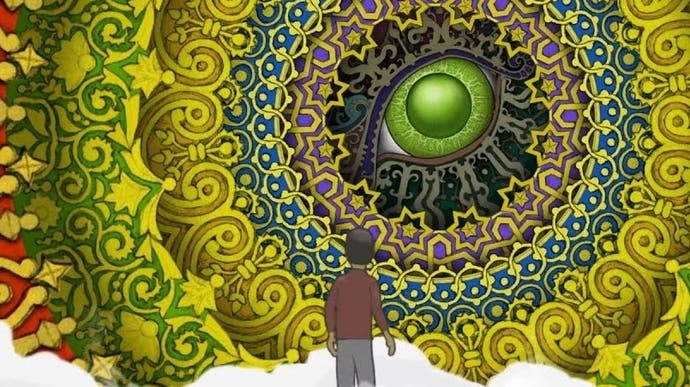Thanks, Edge - you made me Feel Better
Spectrum games.
If you've ever been a fan of Edge magazine, you'll probably know that Thursdays are special. One Thursday a month is Edge Thursday, which means a trip to the shops to pick up the latest issue. Coronavirus has seen to that lovely ritual for the time being, alas. But Edge has had its own response, and it's genuinely magical - a reminder of the power of games, but also a reminder of the power of magazines. Magazines! This perfect bit of technology that can package up a bunch of things and bring them together with some kind of order and structure and glittering coherence. If this makes you think about Lucky Peach, save it - I'm not ready to face those emotions yet.
Edge's first issue since Lockdown is called Feel Better. It's actually pretty hard to get hold of now - I had to buy it online but I gather it's since sold out. I wanted to talk about it a little bit, though, because it genuinely did make me feel better. Mission accomplished.
(I should probably get this caveat out of the way now. Although Edge is not affiliated with Eurogamer, a lot of us have written for the mag in the past, and many of our freelancers still do. When it comes to Edge I am deeply partisan. Also I appreciate that media writing about media can be at best a bit cozy - apologies!)
Feel Better ditches the usual Edge formats for a selection of games that are chosen for their power to soothe and lift players up a bit. The whole thing's presented alphabetically, taking you from A Short Hike to Yakuza 0, and the edges of the pages push you through the spectrum, probably my favourite secret touch in the whole thing. The last book I read which did this was Kassia St Clair's unmissably thrilling The Secret Lives of Colour. In that book I found a bunch of stories about all the colours of the rainbow - a celebration of unusual facts, strange histories and perfect description. Feel Better belongs alongside it on the shelf for sure.
The inspiration for this issue apparently comes from a WhatApp group and a friend in the grip of anxiety. In the words of the opening letter: "we found ourselves recommending some games that would ease the tension and nourish the soul." This is what games are often for, and it's lovely to see it written down.
The games are a marvel. Gitaroo Man. Earthbound. Pikmin 3. They're all charmers, of course, but best of all are the interesting things that happen when they sit next to one another. Electroplankton, the transporting musical Petri Dish, sits next to Everything, a game that's very literally about everything, and you get the shared quirk of two bits of software that defy easy categorisation. But then Everything also sits next to Forza Horizon 3, and I get to ponder for the first time how unusual and improbable and Quixotic Forza's attempt to present so much of automotive history in one go really is. Everything is "an existential collect-a-thon" according to Edge. So is Forza, I realised. (And how weird and perfect it is that the alphabet should conspire to land The Legend of Zelda: The Wind-Waker next to Lonely Mountains Downhill.)
I spent a happy hour in the garden folding down the pages of games I wanted to properly get into. It's clearly time to play Dandy Dungeon and Chuchel. There were also lots of memories - the time I went to Utrecht to meet Ronimo Games, sure, but also the hours I spent cross-legged in front of the console version of their breakout game Da Blob. Jet Set Radio! Professor Layton! Games like these have so many memories, so many kinds of memories, tangled up in them. This is what travelling looks like under lockdown.
I reckon Feel Better is compiled with great taste. But then the more I thought about it, the more I realised that I got so much of my taste from this magazine in the first place. Putting aside Edge for a second, I suspect there is always something or some person who helps guide you in these matters: who subtly orients you, suggesting what to look for, nudging you towards deciding what you value.
If you love games magazines as well as games, you'll know that there is something special to be found in simply reading about games. This is nothing like playing them. Instead, it's that sense of holding games at a thoughtful distance for a few minutes and turning them over, seeing them from different angles. The best games writing is about perspectives - about sharing a point of view in a way that's generous and hopefully reveals something new and valuable, that starts a conversation rather than closes conversations down. This mag, this issue, is all about that. It was just what I needed.



